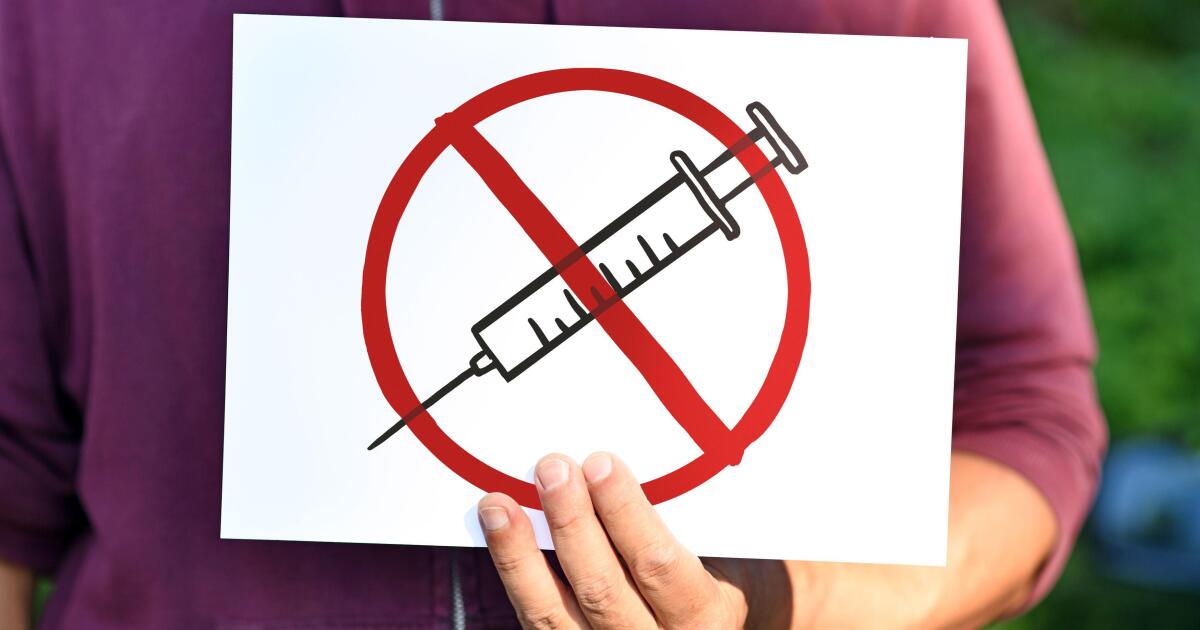
TPR’s Jerry Clayton recently spoke with Dr. Steven Taylor, author of “The Psychology of Pandemics: Preparing for the next global outbreak of infectious disease”.
Jerry Clayton: In the past year and a half, we've seen extreme psychological behavior from many people dealing with the pandemic paranoia, xenophobia, denial, extreme anxiety and more. But as it turns out, it's all happened before. Dr. Steven Taylor, professor and clinical psychologist in the Department of Psychiatry at the University of British Columbia, began writing a book on the phenomena before covid-19 became widespread. The book is called The Psychology of Pandemics Preparing for the Next Global Outbreak of Infectious Disease. He joins us today. Thanks for being here, Dr. Taylor.
Steven Taylor: Thanks very much. Jerry.
Clayton: What gave you the idea to start on this project?
Taylor: Well, my background, my clinical work, my research work is broadly in anxiety disorders, including health anxiety, which is excessive worry about one's health. So with that background, I started noticing in 2018 a bunch of interviews with disease experts, historians of medicine and so forth about predicting the next pandemic. They were interviewed in twenty eighteen because it was the centenary of the the Spanish flu. And so reading those media reports, I got interested in it. And the more I looked into pandemics, the more I realized two things. One is pandemics are a strongly psychological phenomena because the attitudes and behaviors of people determine whether viruses become pandemics or not. And secondly, I realized that no one had ever put it all together into a single book discussing the various aspects of the psychology of pandemics.
Clayton: We've seen so many extreme reactions from some during this pandemic. How does that compare to what happened during the Spanish flu?
Taylor: Well, it's remarkable. Just about everything that's happened during covid-19 has happened before. Panic buying, racism, quack cures. All of those things happened during the Spanish flu and other serious pandemics. The big difference between covid-19 and past outbreaks is the speed with which things and the magnitude with which things happen. So mass protest rallies have happened before in the Spanish flu, but they're bigger and louder this time around because of social media and the 24/7 news cycle that amplifies everything.
Clayton: Can you talk about some of the extreme psychological responses to the pandemic on either side?
Taylor: It's interesting. Pandemics and I suppose other community wide stressful events tend to evoke extremes in people. So although most of the community, most people are resilient and most people are coping fairly well with the pandemic, you do see extremes. And at one end, the extreme of people who think the whole thing is a joke, who think the whole thing is a hoax, they don't see the need to get vaccinated. And there are often the people who spread infection because they're not taking it seriously. At the other end of the people who are excessively anxious, they shut up at home or they're highly worried. They can't sleep at night because they're so worried about covid and they're often the people who have had to have a history of anxiety or emotional problems.
Clayton: What do you think a post Covid world in regards to mental health will look like?
Taylor: I think it's going to be first of anticlimactic. People are expecting a roaring 20s mixed with a tsunami of mental health problems. I don't think it's going to be that dramatic. The roaring 20s, the hyper sociability will be a bit of a blip, but it will be anticlimactic. The most people will bounce back, but they will be a minority of people who do develop enduring psychological problems that will require therapy or some kind of assistance. And I'm thinking about post-traumatic stress disorder or prolonged term phobias or depression or prolonged grief for people who've lost loved ones. So, yes, there will be some enduring psychological problems. So it will be bad news for some people. But I suppose the good news is that they'll be in a minority. It's really difficult to predict at this point what percentage of people will be left with problems. It could be 15, 20 percent. Who knows at this point.
Clayton: Dr. Steven Taylor, thanks so much for your time today.
Taylor: You're very welcome, Jerry, and thanks for inviting me.
Clayton: Dr. Steven Taylor is a professor and clinical psychologist in the Department of Psychiatry at the University of British Columbia. The book is called "The Psychology of Pandemic's Preparing for the Next Global Outbreak of Infectious Disease."
TPR was founded by and is supported by our community. If you value our commitment to the highest standards of responsible journalism and are able to do so, please consider making your gift of support today.
"behavior" - Google News
September 26, 2021 at 09:12PM
https://ift.tt/3m6zWn8
Extreme Psychological Behavior During A Pandemic? It's All Happened Before. - Texas Public Radio
"behavior" - Google News
https://ift.tt/2We9Kdi
Bagikan Berita Ini














0 Response to "Extreme Psychological Behavior During A Pandemic? It's All Happened Before. - Texas Public Radio"
Post a Comment